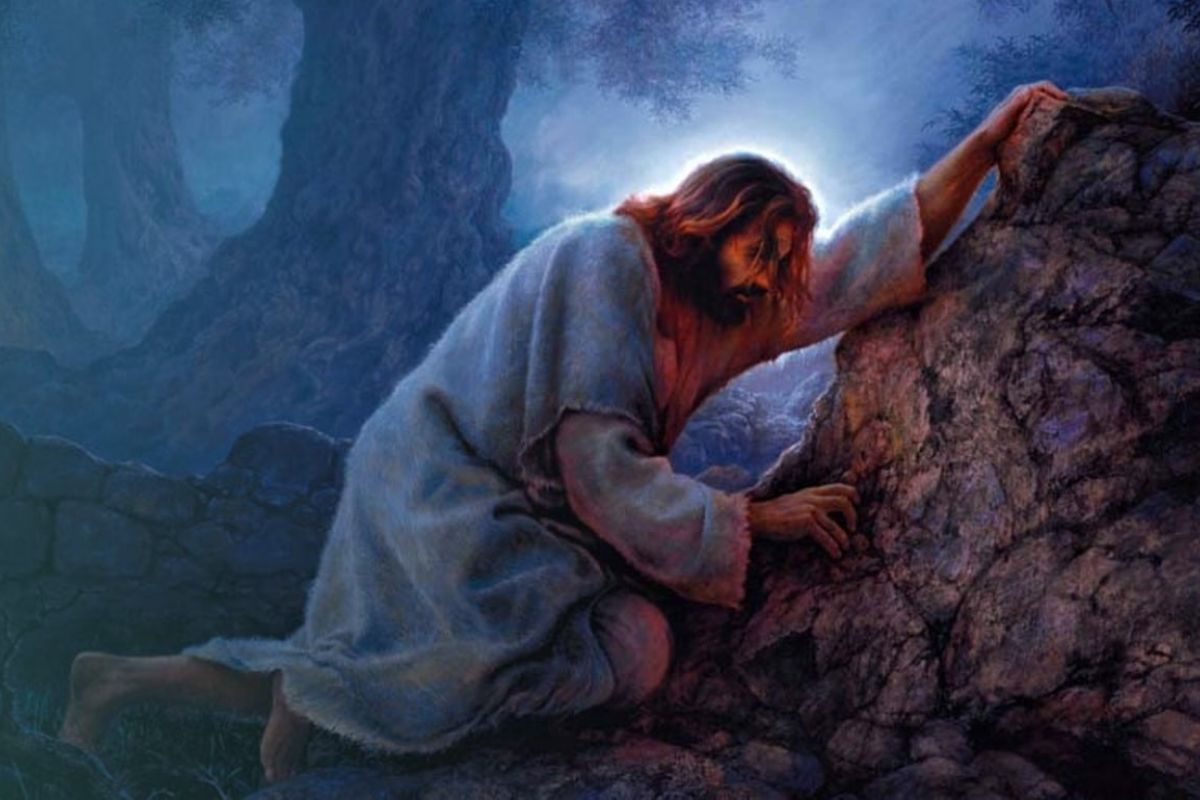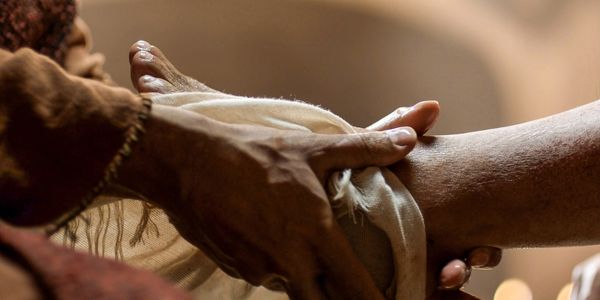
The Gospel of Matthew (chapter 26) recounts the events leading up to the crucifixion of Jesus Christ. One of the key moments in the passion narrative is the Last Supper that Jesus shared with his disciples. Matthew 26: 17 – 35 contrasts Jesus and Judas Iscariot.
The Last Supper is a poignant tale of love, communion and betrayal. The deception of Judas, the vulnerability of Jesus, and the authenticity of his servanthood underscore the central themes of love, humility, and service that are at the heart of the Christian message.
Jesus’ sacrificial love and willingness to lay down his life for his disciples are powerful examples of what it means to love others selflessly. In this article, I explore the theme of Judas’ deception, Jesus’ vulnerability and authentic servanthood to draw lessons for us today.

The Deception of Judas
Judas goes to the Chief priests in the Gospel of Matthew and negotiates a deal for thirty pieces of silver. The Religious leaders are only too eager to pay Judas. It is unclear why Judas would do this!
Some scholars speculate that Judas was motivated by greed (Jn 12: 5 -6), while others suggest that he may have been disillusioned with Jesus. Luke and John tell us that Satan entered into Judas when he decided to betray Jesus (Lk 22:3; Jn 13:27).
Nevertheless, Judas sought an opportune moment to deliver Jesus to the religious leaders (Mt 26:16). Judas’s betrayal sets in motion the events that lead to Jesus’ arrest, trial, and eventual crucifixion.
Judas was with Jesus for a little more than three years. He walked with him, shared meals with him, and engaged in conversations. He deceived the disciples all along. Even at the Last Supper, Judas deceived others by being a part of the fellowship and yet so “far” from them.
Judas concealed his intention from others. Interestingly, Judas asks Jesus in the fellowship around the table, “Is it I?”. The deception of Judas underscores the idea that even those closest to us can betray us.

The Vulnerability of Jesus
The vulnerability of Jesus is also a crucial aspect of this passage. Jesus knew he would be crucified during the Passover (Mt 26:1), so he desired to have the Passover meal with his disciples (Lk 22:15).
Jesus’ vulnerability at this moment is striking. Firstly, Jesus knew that Judas would betray him. Despite knowing that his disciples would soon betray and abandon him, Jesus continued to serve them with love and humility.
Secondly, Jesus takes on the role of a servant by washing his disciples’ feet, a task that a lowly servant typically performs. During the meal, Jesus got up, removed his outer garment and wrapped a towel around his waist. He put some water into a large bowl. He washed his disciple’s feet and dried them with the towel (John 13: 4 -5).
Thirdly, the moment of vulnerability is made even more poignant by the actions of one of Jesus’ own disciples, Judas Iscariot. After Jesus announced that one of his disciples would betray him, Judas tells Jesus, ” Teacher, surely you don’t mean me ?” ( Mt 26: 25). Jesus replied, “That’s what you say!” (Mt 26: 25b) indicating that Judas was indeed the one who would betray him.

Jesus’ Authentic Servanthood
The authenticity of Jesus’ servanthood is another crucial theme in this passage. Jesus’ actions and attitudes are an incredible testament to Jesus’ character and his commitment to the message of love and forgiveness that he preached.
The Last Supper is incredibly powerful because it shows the depth of Jesus’ love and trust in his disciples, even in the face of betrayal and abandonment. Jesus knew that Judas would ultimately betray him, yet he still offered him the bread and wine and still treated him with kindness and respect.
Luke 22:24 tells us that a dispute arose among them as to which of them was to be regarded as the greatest. And yet, despite being the Son of God, Jesus did not seek power or status but instead humbled himself and served others.
His act of washing his disciples’ feet was a powerful symbol of this servanthood, reminding us that true greatness comes not from power or status but from a willingness to serve others with humility and compassion.
In John 13–17, Jesus also talks at length about how important it is for his disciples to love each other and stick together. He prays for their unity and asks that they love each other as much as he has loved them.
Final thoughts!
The passage in Matthew 26:17-35 (along with the parallel passages in Luke 22 and John 13-17) provides a powerful account of the Last Supper and its significance in the Christian faith.
Jesus’ response to Judas’ deception and betrayal is one of love, compassion and forgiveness. He does not condemn Judas. This underscores the idea that even in the face of betrayal and injustice, we are called to respond with love and forgiveness, just as Jesus did.
Jesus’ act of servanthood demonstrates his authenticity as a leader who is willing to put the needs of others before his own. Jesus’ sacrificial love and willingness to lay down his life for his disciples are potent examples of what it means to love others selflessly.
As Christians, we are called to follow Jesus’ example by loving and serving others with humility and compassion.
As we reflect on what this passage means for us and how it applies to our lives, we are reminded of how important faith, community, and selfless love are in our faith journey.
This is part 3 of the series “Jesus: Victor or Victim.” You may also like to read: The Disruption of the Spiritual: First Things First.
Join the 40-day challenge. Read our Lenten articles every day for the next 40 days!
https://www.barnabastoday.com/category/faith/40-day-challenge/








